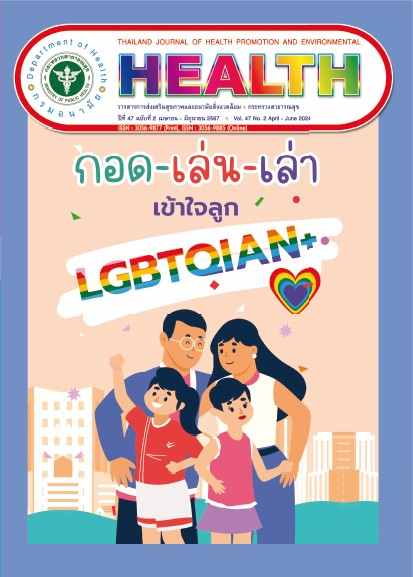Rainwater Qualities, Attitudes and Behaviors of the People for Rainwater Consumption in Nakhon Ratchasima Province
Keywords:
Rainwater qualities, Attitude, Behavior, Consumption of rainwaterAbstract
This analytical cross-sectional study aimed to investigate the quality of rainwater, attitudes, and behaviors of rainwater consumption among the population in Nakhon Ratchasima province and to find the relationship between personal characteristics and the decision to consume rainwater. Rainwater samples were collected during the middle of the rainy season, totaling 32 samples, by staff and volunteer networks of the Meteorological Department, according to the quality standards for drinking water, the Department of Health, and random sampling of households in each district, 30 households per district, one person per household, totaling 960 people. The study found that none of the samples met all quality standards. Bacterial contamination did not pass the standard at 100%. Conversely, 100% of the samples met general chemistry standards. and physical properties passed the standard 48.39%. Some rainwater samples were found to contain heavy metals exceeding the standard, making them improper for consumption, at 6.45%. It was found that the sample group still drank rainwater stored at home. Only 23.02 percent said the reason for not drinking rainwater was that most were afraid that rainwater would not be clean at 58.49%. Regarding opinions on the quality and consumption of rainwater, the majority of the sample group agreed that industrial factory smoke, garbage incineration, or traffic emissions might cause polluted rainwater, at 44.9%. As for behaviors in storage, consumption, and utilization of rainwater, closing the mouth of the rainwater storage container with insect-proof devices was the most practiced behavior at 56.7%. Personal characteristics such as occupation, education, and income were statistically significantly correlated with the decision to consume rainwater (P < 0.05). Recommendations for the research area include utilizing the obtained data as a basis for reference and planning to promote rainwater consumption, particularly in areas where the population still consumes rainwater. In cases where the quality of rainwater does not meet chemical standards, simple methods such as filtration, boiling, or chlorine treatment should be implemented to make it consumable.
Downloads
Published
Issue
Section
License
Copyright (c) 2024 Thailand journal of Health Promotion and Environmental Health

This work is licensed under a Creative Commons Attribution-NonCommercial-NoDerivatives 4.0 International License.

